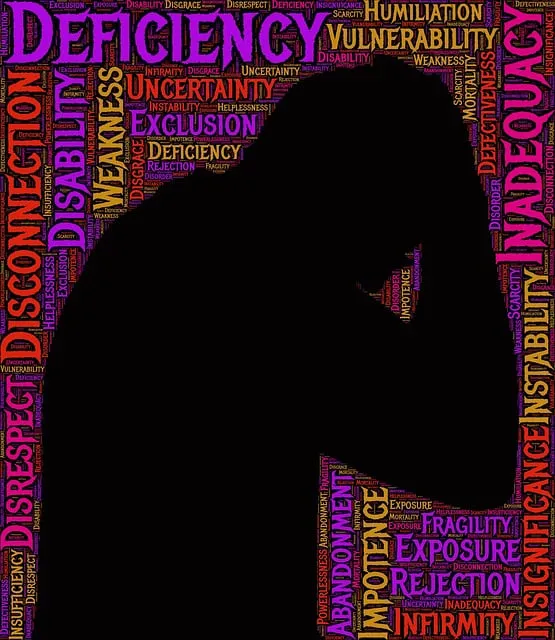Castle Rock Kaiser Permanente mental health providers adopt a comprehensive, holistic approach to patient care, integrating risk assessment with social, economic, and environmental factors. They utilize Empathy Building Strategies, Stress Reduction Methods, and Mind Over Matter principles to empower patients with tailored support for immediate concerns and long-term resilience. Through continuous improvement, dynamic risk assessment, and harm minimization planning, they foster trust, reduce stigma, and enhance patient outcomes in a supportive environment.
At Castle Rock Kaiser Permanente, mental health care is redefined through comprehensive risk assessment and harm minimization planning. This strategic approach ensures patient safety while empowering mental health providers to deliver optimal care. The article delves into three key aspects: understanding risk assessment in mental health, implementing effective harm minimization strategies, and continually improving risk plans based on patient outcomes. Discover how Castle Rock Kaiser Permanente’s innovative practices set a new standard for patient care and well-being.
- Understanding Risk Assessment in Mental Health Care at Castle Rock Kaiser Permanente
- Implementing Harm Minimization Strategies for Safe Patient Environments
- Continuous Improvement: Monitoring and Adjusting Risk Plans for Optimal Patient Outcomes
Understanding Risk Assessment in Mental Health Care at Castle Rock Kaiser Permanente

At Castle Rock Kaiser Permanente, risk assessment plays a pivotal role in mental health care, providing a structured framework to identify and mitigate potential risks within the patient’s environment. Mental health providers employ comprehensive evaluations that consider not just clinical symptoms but also social, economic, and environmental factors. This holistic approach ensures that every patient receives tailored support, addressing not only immediate concerns but also long-term risk factors.
The process involves collaborative efforts between providers and patients, fostering an environment of trust and empathy. By integrating Empathy Building Strategies, mental health professionals cultivate deep understanding and connection, enabling open dialogue about stressors and challenges. Additionally, incorporating Stress Reduction Methods and Mind Over Matter Principles empowers patients to manage their mental well-being proactively. This combined approach not only minimizes immediate harm but also equips individuals with resilience to navigate life’s complexities.
Implementing Harm Minimization Strategies for Safe Patient Environments

At Castle Rock Kaiser Permanente, mental health providers prioritize harm minimization strategies to foster safe and supportive environments for patients. This involves a multi-faceted approach that includes coping skills development programs designed to equip individuals with tools to manage stress and overcome challenges. By integrating these initiatives into routine care, the team aims to reduce risk factors associated with mental illness and promote positive outcomes.
Effective communication strategies play a pivotal role in this process. Mental health professionals encourage open dialogue, ensuring patients feel comfortable discussing their concerns and seeking assistance. Additionally, Castle Rock Kaiser Permanente engages in Mental Illness Stigma Reduction Efforts, fostering an inclusive atmosphere where individuals can access care without fear of judgment or discrimination. These comprehensive measures contribute to creating a nurturing environment that enhances patient safety and well-being.
Continuous Improvement: Monitoring and Adjusting Risk Plans for Optimal Patient Outcomes

At Castle Rock Kaiser Permanente, mental health providers are committed to a dynamic approach to risk assessment and harm minimization planning. Continuous improvement is integral to this process, as monitoring and adjusting risk plans allow for optimal patient outcomes. By regularly reviewing case management strategies, therapists can identify areas where Emotional Intelligence and Conflict Resolution Techniques might be enhanced. This proactive monitoring ensures that the self-care routine development for better mental health remains at the forefront of treatment plans.
Through ongoing evaluation, providers can adapt their approaches based on emerging research and patient feedback. Such adjustments not only maintain but also elevate the quality of care, fostering a more supportive and effective environment. By embracing continuous improvement, Castle Rock Kaiser Permanente mental health providers exemplify their dedication to staying at the vanguard of best practices in their field.
Risk assessment and harm minimization planning are essential components of providing safe and effective mental health care at Castle Rock Kaiser Permanente. By understanding the unique challenges faced by mental health providers, implementing tailored strategies for patient environment safety, and continuously monitoring and adjusting risk plans, we can ensure optimal outcomes for our patients. The practices outlined in this article empower Castle Rock Kaiser Permanente mental health providers to deliver high-quality care that prioritizes both patient safety and wellness.





